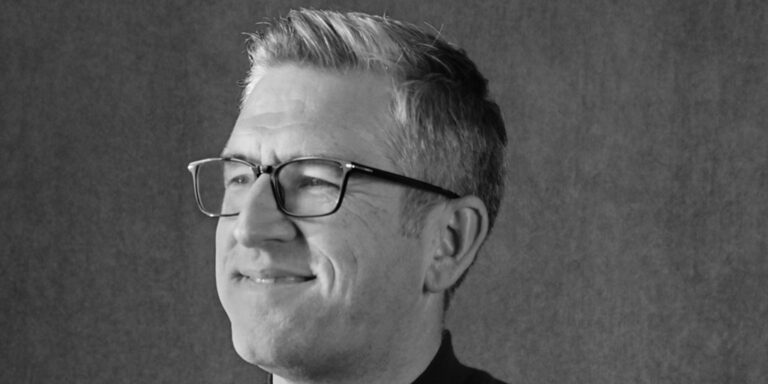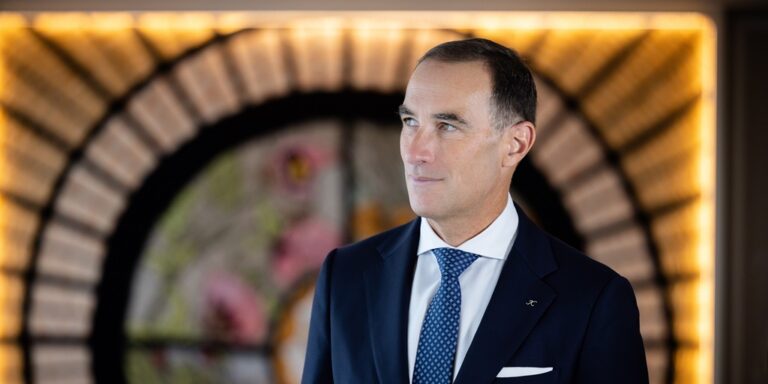Resident Hotels is steadily building a UK empire of city centre upper upscale properties and has recently acquired a compatriot company to further boost its portfolio.
TOPHOTELNEWS sat down with CEO David Orr to see what else is on the horizon for the boutique business.
Organic and acquisitive growth
Resident Hotels’ The Resident brand began in London’s Kensington in 2006 and since then has expanded to three additional locations across the city and further afield to Liverpool. With nearly 400 rooms in its current portfolio, Orr revealed ambitious targets for future development: “We are looking to get up to around 1,500 rooms within five years, which suggests another 10 or so hotels.”
Aside from the main brand’s organic growth, the firm’s owners, Mactaggart Family & Partners, this year acquired a majority stake in compatriot company Sleeperz Hotels, which numbers premium budget city centre hotels in Cardiff, Newcastle, Dundee and Edinburgh, with the latter site under the Cityroomz brand. According to Orr: “It’s early days but there are growth ambitions for those brands as well. We’re very interested in how we develop that.”
Edinburgh scope
Resident Hotels is in the pre-application process on another property, but to get the ball rolling on nearly tripling its system size with an extra 1,100 keys, the brand is also targeting the Scottish capital. The firm’s first foray north of the English border will be the 166-room The Resident Edinburgh, which is due to complete in February 2024.
The hotel is a significant redevelopment of a former HMRC (UK government) building on the borders of the city’s west end and new town areas. As an Edinburgh native, Orr was very particular about the location choice: “Edinburgh has got seven hills and even within the city there are quite a number of significant undulations, so we wanted to be on the flat in the centre of the city.”
Extensive investigations
He continued: “The other important aspect was having a building that was capable of substantial refurbishment. We’ve been keen to take advantage of the original concrete structure that was built in the very early 1960s. Understanding it has been a challenge and has meant a huge amount of due diligence work in advance.”
Preserving the concrete facade prompted the hotel owner to undertake structural and chemical testing to make sure the building would be safe to use, and Orr reported that fortunately no issues were found. “We’ve had to look at the building’s design, understand what we wanted to do with it and how to achieve that in a way we can viably keep the frame,” he explained.
Fair COP
Resident also has a strong green thread running through the project: “Carbon capture is a major part of mitigating the amount of carbon that is inevitably involved in any form of redevelopment, so keeping the frame has been very much part of that,” said Orr, revealing: “The building featured in COP26 as an exemplar project of an office to hotel conversion.
“In many cases the lifetime carbon impact of retaining an inefficient building could actually be demonstrated to be less effective from an environmental and sustainability point of view. So it’s been a really interesting project and tested a lot of aspects that are not directly hotel things.
“The format, the layout and the sustainability story will all hang together very well. The Resident Edinburgh will be seen by guests, teams and investors as an exemplary project and we’re really excited about it.” Currently Resident is tendering for a design and build contract for the final stages of the hotel.
Site selection
When asked about location criteria for the brand’s sites, Orr outlined: “Our focus for The Resident is the best of UK cities. Our Edinburgh site gives a sense of the scale within a provincial city that we feel comfortable with, but we wouldn’t go to every provincial city, we’re quite selective. Edinburgh is a good example of a market which has international and domestic dimensions to it, as well as broad shoulders across cultural, economic. educational aspects of the local economy.”
Drilling down into possible target cities, he cited Birmingham, Bristol, Bath or the Oxbridge conurbations, analysing: “They’ve got a lot of international awareness, levels of connectivity, depth in education or economics or a combination of all of them.” But what of international localities themselves? Although Orr has experience of building a hotel from scratch when he was CEO of Mint Hotel over a decade ago, he weighed up: “There are certain European cities which would definitely work for us, so never count it out. However, being absolutely realistic, the UK and Ireland are strong hotel markets which make a lot of sense for us.”
So does the firm typically look for newbuilds or conversions? “There’s been flexibility around that because our buildings have been largely conversions or partial newbuilds,” said Orr. “Either is fine. I think we have moved on a bit from believing that absolute consistency physically is a prerequisite. Certain physical aspects are prerequisites, just not all of them.”
Suppliers and recent refurbs
Supply for each hotel project comprises a mixture of universal and location-specific products, plus the pandemic spurred the company to initiate a soft refurbishment of the brand’s existing hotels, particularly in the public areas. “Because we have relatively small public areas it’s very important for them to function on multiple levels – not just functionally, but also in terms of the narrative,” commented Orr. “So for the choice of furniture and materials, we look at the design and the manufacture being English or British heritage items, handpicked and advised by one of the very best furniture design experts in the UK. We’re always looking for ways to make things relevant to that local area. So in Edinburgh there will be undoubtedly conversations with Scottish manufacturers.
“Procurement for us is not necessarily just about the supply chain orthe pricing, it’s about provenance, authenticity and value.”
Selected amenities
As to why public areas are scaled back at The Resident sites, Orr explained: “The brand is The Resident, so it’s deliberate to personalise it and reflect a sense of intimacy and mutual respect between the guest and our teams. We look at everything through the prism of providing and hosting spaces people want to go into in a city, providing an enclave inside a busy area. So it’s very purposeful that we wanted to focus on that bilateral relationship and not to try to be the best restaurant, bar or theatre in the area because we’re choosing to be in the best cities.
“There are lots of lifestyle hotels which have excellent destination bars and restaurants, but we are a smaller business and our impact is much better made recognising that we can be a really good home from home. We’re not a five star offering, nor are we pretending to be, but we’re much more nuanced and elevated in terms of the interaction than you would get in a four star hotel.”
Positive future
Acknowledging that the economic environment has “the strongest volatility levels since the late 1970s”, Orr feels that he will “draw upon the knowledge I’ve had of all of the major disruptive events that I’ve experienced in business” to steer the company safely through these choppy waters. But he is also assured that guests feel confident and want to travel.
He concluded: “The future is uncertain. Humans are unbelievably resourceful and, unlike any time previously, there is unique access to extraordinary levels of data and technology. We’ve got to be positive. I think the main thing is remaining in contact with the reality of how we are performing as a business and how the brand resonates with the people who work within it and the guests. The broad outline is ending up with a relatively small but significant brand in the cities in which we choose to be.”
Many TOPHOTELNEWS articles draw on exclusive information from the TOPHOTELPROJECTS construction database. This subscription-based product includes details of thousands of hotel projects around the world, along with the key decision-makers behind them. Please note, our data may differ from records held by other organisations. Generally, the database focuses on four- and five-star schemes of significant scale; tracks projects in either the vision, pre-planning, planning, under-construction, pre-opening or newly opened phase; and covers newbuilds, extensions, refurbishments and conversions.

Related Articles
[showlayout id=510774]





